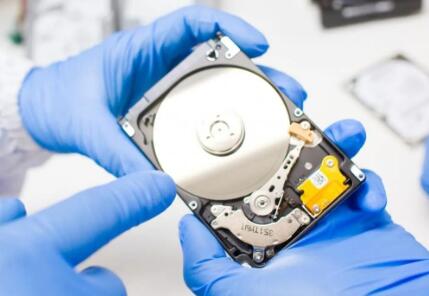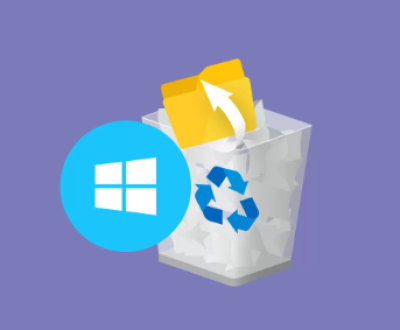Data recovery is the process of retrieving inaccessible, lost, corrupted, damaged, or formatted data from storage devices such as hard drives, SSDs, RAID arrays, USB drives, memory cards, and even mobile devices. This recovery can involve software solutions, hardware repairs, or a combination of both.
Why Do People Need Data Recovery?
Common reasons include:
Accidental deletion of files or formatting of drives
Software corruption or virus attacks
Physical damage like drops, water spills, or electrical failures

Mechanical failures within hard drives
Logical errors such as corrupted partitions or failed operating system updates
Types of Storage Devices
Austin’s tech users and businesses commonly utilize these storage devices:
Hard Disk Drives (HDDs): Traditional magnetic disk drives prone to mechanical failure.
Solid-State Drives (SSDs): Faster and more reliable but harder to recover from due to complex firmware.
RAID Arrays: Multiple disks working together; complicated recovery process if the array fails.
USB Flash Drives and Memory Cards: Portable but vulnerable to corruption and accidental deletion.
Mobile Devices: Smartphones and tablets with encrypted or proprietary file systems.
The Importance of Professional Data Recovery Services
While DIY tools exist, professional services are crucial when:
The data is critical or irreplaceable
The device has physical damage
Data loss involves complex systems like RAID or SSD firmware
You need guaranteed confidentiality and security
Attempting DIY recovery without proper knowledge can worsen damage, making professional intervention more difficult or impossible.
Data Recovery Services Available in Austin
Austin offers a variety of options, from national chains with local branches to independent specialists. Here’s what to expect.
Types of Service Providers
Specialized Data Recovery Labs: Equipped with clean rooms and advanced tools for physical repairs.
Computer Repair Shops: Offer logical recovery services using software tools.
National Chains: Brands like DriveSavers, Secure Data Recovery, and Ontrack may have Austin offices or offer mail-in services.
Local Specialists: Austin has reputable local providers known for personalized service and faster turnaround.
Popular Local Data Recovery Companies in Austin
Austin Data Recovery
Known for expert diagnostics, cleanroom repairs, and success with physical and logical failures. They offer free evaluations and no data, no fee policies.
Drive Data Recovery
A reliable local company providing quick turnaround and competitive pricing. They cover HDDs, SSDs, RAID arrays, and mobile devices.
Geek Rescue Austin
Specializes in software-based recovery, virus removal, and hardware diagnostics for consumers and small businesses.
Secure Data Recovery Services (Austin Branch)
A national leader with a local presence, offering comprehensive recovery with high-end technology and cleanroom environments.
Emergency and On-Site Services
Some providers in Austin offer emergency data recovery, including:
Same-day or next-day recovery
On-site diagnostics for businesses with large data needs
Remote support and initial troubleshooting
How Data Recovery Works: The Austin Process
Step 1: Initial Evaluation
The first step is a free or low-cost diagnostic to assess the device’s condition and the likelihood of recovery. Austin providers will examine:
Device type and model
Symptoms of failure (e.g., clicking noises, unreadable partitions)
Data loss scenario (accidental deletion, physical damage, etc.)
Step 2: Quotation and Approval
Based on the diagnosis, the provider offers a price estimate and expected turnaround time. Most Austin companies work on a “no data, no fee” basis, so you only pay if the data is successfully recovered.
Step 3: Recovery Process
Depending on damage:
Logical Recovery: Using advanced software to scan and reconstruct lost data.
Physical Repair: Cleanroom repair to replace damaged components like read/write heads or platters before data extraction.
Firmware Recovery: For SSDs or drives with firmware corruption, specialized tools are employed.
Step 4: Data Validation and Return
Recovered data is validated for integrity and transferred to a new storage device. Providers typically deliver the data via external hard drives, USB sticks, or secure online transfer, depending on your preference.
Common Data Recovery Scenarios in Austin
1. Accidental Deletion or Formatting
The most common issue. Recovery software scans for file remnants and reconstructs them.
2. Hard Drive Mechanical Failure
Symptoms include clicking or grinding noises. Requires professional repair and data extraction in a cleanroom.
3. RAID Array Failure
Austin businesses relying on RAID arrays face complex recovery, often requiring reassembling RAID configuration and recovering data from multiple disks.
4. SSD Data Recovery
Because of wear leveling and encryption, SSD recovery is specialized. Austin labs with advanced technology handle these recoveries.
5. Virus or Ransomware Attacks
Data may be encrypted or corrupted. Recovery involves decryption and file repair.
Pricing and Cost Factors in Austin
Data recovery costs in Austin can range widely, influenced by:
Type of device: HDD recovery is cheaper than SSD or RAID.
Damage severity: Logical recoveries are less expensive than physical repairs.
Data importance: Urgent business data may incur rush fees.
Volume of data: Larger data sets may raise costs.
Turnaround time: Emergency or expedited services cost more.
Typical Pricing Ranges
Simple Logical Recovery: $100 to $500
Moderate Recovery with Minor Physical Repair: $500 to $1.500
Complex Physical or RAID Recovery: $1.500 to $3.500 or more
Always ask if the provider offers a “no data, no fee” guarantee.
How to Choose the Best Data Recovery Service in Austin
1. Check Credentials and Certifications
Look for companies certified by organizations like:
International Society of Forensic Computer Examiners (ISFCE)
RecoveryLabs Cleanroom Certification
ISO 5 or Class 100 Cleanroom Facilities
2. Reputation and Reviews
Read customer testimonials and independent reviews. Austin’s tech community often shares recommendations.
3. Transparency and Pricing
Choose providers with clear, upfront pricing and diagnostic policies.
4. Data Security and Privacy
Ensure your data will be handled confidentially, with secure processes and legal compliance.
5. Turnaround Time
Ask about standard and expedited service times to fit your needs.
DIY vs. Professional Recovery in Austin
While DIY software recovery tools are available online, Austin experts generally advise professional services for:
Physical device damage
Critical or sensitive business data
RAID or SSD recovery
Cases where previous DIY attempts failed
DIY attempts can cause further damage, raising costs or reducing recovery chances.
Preparing for Data Recovery in Austin
To maximize success:
Stop using the device immediately after data loss.
Avoid DIY fixes if hardware damage is suspected.
Back up recovered data immediately.
Choose a local Austin provider if speed is important.
The Future of Data Recovery in Austin
Austin’s expanding tech industry, including startups and large enterprises, drives innovation in data recovery technologies. Local providers are investing in:
AI-driven recovery software
Enhanced cleanroom facilities
Specialized services for cloud and virtualized storage systems
This ensures that Austin remains a stronghold for effective, cutting-edge data recovery.
About us and this blog
Panda Assistant is built on the latest data recovery algorithms, ensuring that no file is too damaged, too lost, or too corrupted to be recovered.
Request a free quote
We believe that data recovery shouldn’t be a daunting task. That’s why we’ve designed Panda Assistant to be as easy to use as it is powerful. With a few clicks, you can initiate a scan, preview recoverable files, and restore your data all within a matter of minutes.

 Try lt Free
Try lt Free Recovery success rate of up to
Recovery success rate of up to









